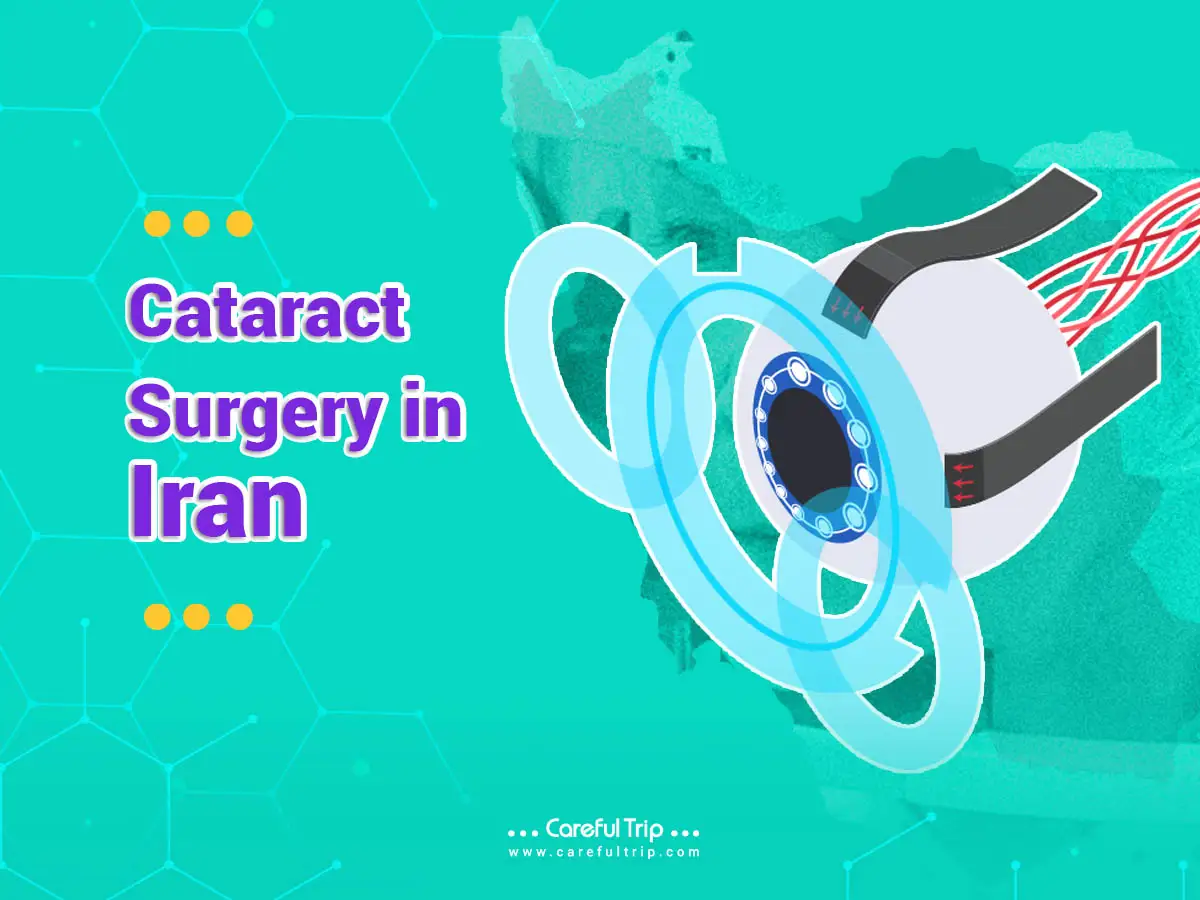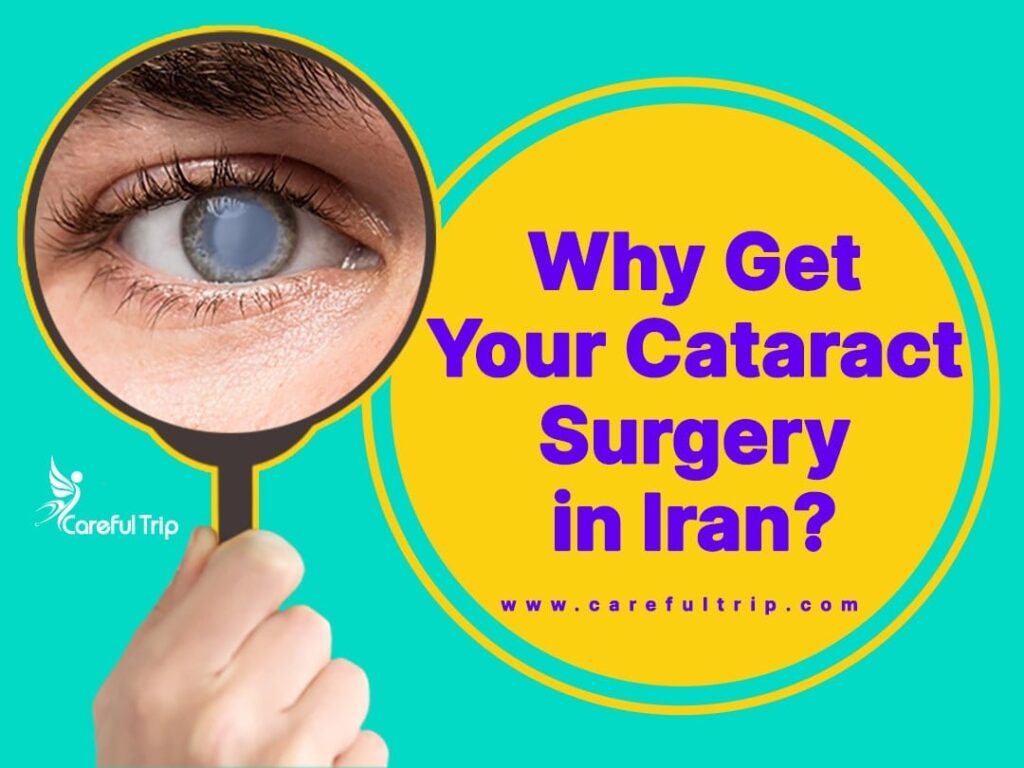











The essential feature of eye lenses is their transparency. A cataract is a condition in which the eye lenses are blurred or clouded. Cataract interferes with vision and in 99.99% of cases, the natural eyes lenses would be replaced by artificial lenses or intraocular lenses. This procedure is called Cataract surgery, which is a very common surgery, with a 97 % to 98 % success rate.
Cataracts are partial or complete opacifications of the eye lenses. Therefore, the eye lenses must be replaced with an intraocular lens during surgery. In the case of cataracts, the patient would experience a decrease in visual acuity especially the far vision, which can be troublesome in everyday life, such as driving. Anyone, over 18 years old, and in some cases at a very young age, can benefit from this surgery. For people over 60, there is a 50% chance of developing cataracts. To this day there has been no other effective medical treatment for this condition and the only option would remain surgical.
Senile cataract is a type of Cataract that appears spontaneously and gradually with age, after 60 to 70 years. However, certain factors can trigger the senile Cataract, such as trauma, prolonged exposure to ultraviolet rays, smoking, heredity, diabetes, and certain metabolic diseases, etc.
Hereditary cataracts, on the other hand, may develop even in young children. Depending on the extent of the opacity of the lens, even at an early age, cataract surgery is recommended.
It should be noted that Cataract is one of the leading causes of blindness.
If both eyes have developed cataracts, the surgery will be conducted on one eye, and after a few days on the other one.
Local anesthesia suffices it for cataract surgery and allows obtaining the immobility of the eye. It should be noted that the intraocular lens does not restore near vision. After the surgery, the normal optimal distance vision is obtained (10/10) and there would be no need for glasses.
Cataract surgery is a transformative procedure in which the cloudy natural lens of your eye is removed and replaced with an artificial intraocular lens. As cataracts progress, vision can become blurred, and light sensitivity may increase, disrupting your ability to drive, read, or perform daily tasks. In Iran, cataract surgery is an outpatient procedure in state-of-the-art clinics, allowing patients to return home the same day. With highly experienced ophthalmologists and cutting-edge technology, most patients report a painless experience with minimal side effects.
Cataract surgery in Iran is increasingly popular among both domestic and international patients. The country’s expertise in ophthalmology, affordable pricing, and internationally accredited medical facilities make it a preferred destination for those seeking advanced, high-quality eye care. Whether your cataract is impairing your vision or complicating other eye conditions, timely surgical intervention can restore clarity and improve your quality of life.
Ophthalmologists recommend cataract surgery when the clouding of the lens significantly impairs vision. Common symptoms include:
Cataract surgery is also advised in some cases when other eye conditions—such as age-related macular degeneration or diabetic retinopathy—complicate your vision. Even if your cataract does not yet severely impact your daily life, delaying surgery may increase the risk of complications like elevated eye pressure or inflammation, which could lead to glaucoma or irreversible vision loss. The decision to proceed with surgery should be based on how much your vision affects your daily activities and overall quality of life.
For more information, read:
There is no need to rush into cataract surgery if the condition is not yet interfering with your day-to-day activities. However, waiting too long can lead to additional complications. Consider having the surgery when:
Patients should not delay surgery if vision issues affect their independence or safety, as timely intervention is key to preserving long-term eye health.
While cataract surgery is generally safe, certain situations may require postponing the procedure:
In such cases, your ophthalmologist will weigh the risks and benefits carefully and may suggest alternative treatments until you are a better candidate for surgery.
For more information, read:
Although cataract surgery is considered one of the safest procedures, there are potential risks, including:
Following all post-operative instructions and attending follow-up appointments are critical to minimizing these risks.

Cataract surgery in Iran is performed as an outpatient procedure and typically takes less than an hour. The process includes:
Recovery typically involves:
Patients are generally advised to have a responsible companion drive them home after surgery and to plan for minimal physical exertion during the initial recovery phase.
For more information, read:

Iran stands out as a world leader in ophthalmology due to its:
Medical tourism facilitators like CarefulTrip work with top clinics such as Noor Ophthalmology Hospitals, ensuring that patients receive high-quality treatment and comprehensive support throughout their journey.
Cataract surgery in Iran offers a modern, reliable solution for restoring vision and enhancing quality of life. With a focus on patient safety, advanced surgical techniques, and affordable pricing, Iran has emerged as a leading destination for cataract surgery. If cataracts compromise your vision or face challenges in your daily activities due to deteriorating eyesight, it may be time to consult an experienced ophthalmologist. Cataract surgery can significantly improve your visual function and overall well-being with careful planning, thorough pre-operative evaluation, and diligent post-operative care.
For more information or to schedule a consultation, contact a trusted medical tourism facilitator like CarefulTrip. Then, you can experience world-class eye care in Iran.




A cataract is a condition in which the eye lenses are blurred or clouded.
Anyone, over 18 years old, and in some cases at a very young age, can benefit from this surgery. For people over 60, there is a 50% chance of developing cataracts.
Certain factors can trigger the senile Cataract, such as trauma, prolonged exposure to ultraviolet rays, smoking, heredity, diabetes, and certain metabolic diseases, etc.
Cataract surgery, which is a very common surgery, with a 97 % to 98 % success rate.
After the surgery, the normal optimal distance vision is obtained (10/10) and there would be no need for glasses.
